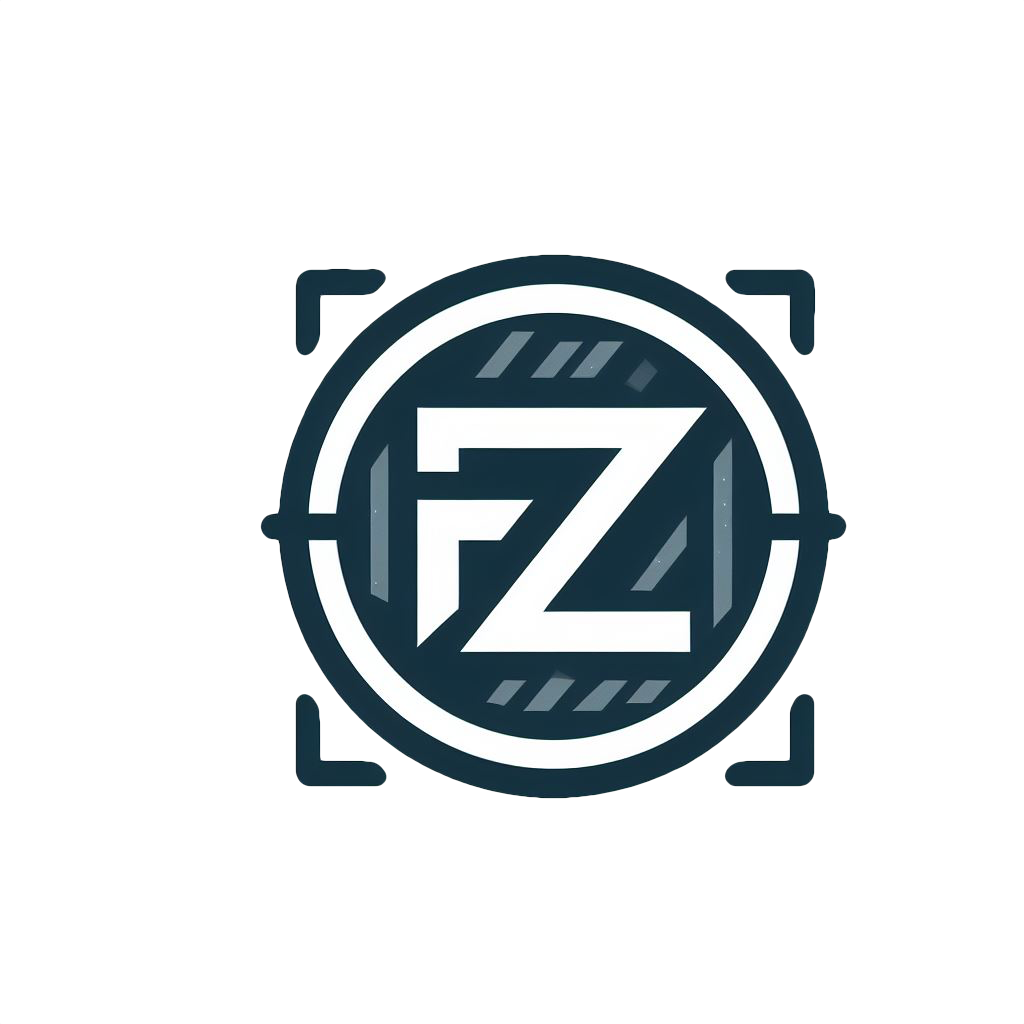Trying to discover new/unheard Linux desktop programs (Sorry for the confusion).
Edit: I apologise for confusing a lot of people. I meant Linux desktop “programs” coming from Windows/Mac. I’m used to calling them “apps”.
Edit: 🙌 I’m overwhelmed with the great “programs” people have recommended in the comment section. Thank you guys.
They are called “programs”, not “apps”. The word “app” was created for the iPhone and originally meant a “mini” slimmed down application meant for mobile devices, not a catch-all term for any user program running on a CPU.
/getoffmylawn
☝️🤓
I prefer https://i.imgur.com/E0QsRiQ.png
This. I really don’t understand the down-votes - using the correct words makes life easier for everyone, including the OP.
App and program are interchangeable terms, it doesn’t matter.
And stuff like this is why Linux communities get a bad rep lol. No one cares that the the term all only came along with the iPhone, it’s a common term now so get used to it.
Sir, this is an AppleBees.
This is simply not true.
To add, you could have looked this up before posting a hostile comment on a relative newcomer’s post. This is how linux communities develop reputation of being exclusive & unfriendly.
Way to out-pedantize a pedant. Also, wikipedia isn’t exactly a credible source. While I wouldn’t personally split hairs on the use of “app”, TimeSquirrel isn’t wrong in that the use of that short-form wasn’t ubiquitous until the time of smart-phones, and more specifically, the iPhone.
Also, since we’re quoting sources, take a look at https://www.britannica.com/technology/mobile-app which specifically states “app” meaning “mobile device software”.
Luckily Wikipedia articles typically include sources:
https://www.osnews.com/story/24882/the-history-of-app-and-the-demise-of-the-programmer/
Keep reading:
The term “app” usually refers to applications for mobile devices such as phones.
“Usually”
BleachBit is a must have and PhotoGIMP is pretty neat.
A lot of good stuff here. The three things that are most notable for me are:
Notepadqq
Fsearch
Librewolf
I am currently deciding wether to use librewolf or floorp, do you by chance have an opinion on that?
LibreWolf is much better for privacy, it’s specifically optimized for that. It also ships much less bloat by default.
QuodLibet: I’m waiting for Amarok 3 to be ported but right now this is the best music collector/player in my experience.
Have you tried Strawberry?
Agreed
NewPipe
Have you ever tried grayjay? Its like freetube but pipes into all services like twitch, odysse,rumble, kick And youtube. All into one app Its also is open sourced
It’s not really FOSS, just the software-equivalent of CC-BY-NC or CC-BY-NC-ND.
I have but found it clunky…
I like to pack services in containers so ctop has been a great basic ui to manage and monitor them in the shell
Logseq.
What is Logseq?
It’s a non-linear note taking app that allows smart linking and is made as a second brain.
It makes use of the Zettelkasten system, where, in theory, you make notes of everything and categorize it. Over time, you offload your brain and make it free for more productive stuff.
Logseq is often considered as a FOSS alternative to Obsidian.
I was never able to fully get into Logseq, might give it another try at some point.
Have you tried QOwnNotes? I think it’s pretty good
I have not, I’m using Standard Notes at the moment. I’ll have a look at QOwnNotes though, thanks for the recommendation
QOwnNotes
Thank you for recommending this. I started using Joplin about week or two ago, but this one seems even better for me.
Do it!
I had some initial problems in the beginning, because I was used to linear note taking apps like OneNote or Joplin, but once I watched a guide on how it works, it clicked and now it’s my second nature. I even began to write my hand written notes in Logseq style!
TL;DR, if you don’t wanna watch any guides/ read docs:
- Indentation matters. Logseq works with a parent-child hierarchy
- You usually don’t open or create new pages, you write everything in your journal and link stuff there.
- Use links, either with
[[Link]]or#Tag, which are the same. They crosslink different topics and reveal connections. - Make use of plugins. There are thousands of it. Especially the Graph Analysis plugin should be included by default.
I used Obsidian extensively at a previous job. The linking of notes was super helpful! I don’t think it’ll work as well for my needs at the moment (at work) but I’ll give it a go
What do you do at your job? As long as you don’t work at an assembly belt in a factory, you will still probably get benefits out of it.
Examples:
- Notes about colleagues or customers
- Project ideas
- Random thoughts
- Writing down meetings and mails
- And much more!
Do you feel like offloading stuff into your notes helps your cognition?
I don’t use Logseq, I use Silverbullet, and yes, it helps A LOT. I have lots of random notes on random pages on how to do things at work, or on my personal servers or whatever. You know that feeling of “I’ve already had to deal with this, how the hell did I do it?” It’s completely gone.
If you use a good organization system with a hierarchy that makes sense and tags you can easily find stuff, so you can turn off your brain from having to remember all of that and it can focus on the thing you need to actually solve now. Don’t know if you’re old enough to remember a time before cellphones, we had to remember our friends number, nowadays this is not a concern, because your phone will remember the number for you, it’s like that but for everything, very liberating.
Yeah, definitely, especially at work.
It really helped me to switch off my “work brain”, because I know, that everything I did today is written down, and I don’t have to keep things in my mind anymore after work. Doing that was a blessing for my stress level and mental health.It also gives me the edge above my colleagues that I “remember” everything I did in the last months, which is nice when my boss wants to know details of a project I did a year ago.
I basically can’t even remember what I did 5 minutes ago (ADHD says hello), but I know exactly where I can find that knowledge. This frees up my working memory (psychological term, not related to work) immensely. It’s basically like transfering more tasks onto your hard drive instead of keeping it in the RAM.
It’s also great to give me an graphical overview of all I think and work on all day, and unveals connections I never thought of between different topics.
For private use, it’s also great as a journal, though I gave up on that because I’m too busy for it and it cost too much time in my everyday life. But I still use it daily for normal note taking, e.g. results of some experiments at home, hobbies, thoughts, and much more.
Fuck you I’m sold. That sounds so useful if I can stick with it enough.
That sounds so useful if I can stick with it enough.
That’s my main issue for private use. At my job, I never had problems sticking with the habit of writing everything down. I work in a science job, and documentation is key there. So, I basically get paid for exactly that.
But in my free time, the whole concept of task management, knowledge offloading, and more, is a bit harder for me, especially when I come home tired.
Welcome in the life of someone with ADHD. I need my life to be organized, but have a hard time with exactly that. It’s like needing to find your contact lenses because you dropped them…
All of this makes sense, but I still can’t wrap my head around the “finding” of information. How do you search for it? Do you remember keywords or the location of the note (this I feel like maybe defeats the purpose of Logseq’s write anywhere idea)
I use a mix of
- Search bar, very powerful
- The graph overview, which allows me to “hunt” for the thing I need
- Filters
- And a lot of tags, aliases and crosslinks
I tried it and really wanted to like it, but the Android client’s UI is just unusable for me. as much as I prefer going FOSS whenever I can, I tried Obsidian and stuck with it. it’s electron on desktop and definitely not native UI on mobile, but feels much more polished.
Yeah, the Android app is horrible. I only use it if I don’t have my PC in arm’s reach.
It feels sluggish, buggy, is overloaded, I always get sync issues (usually the last words I just typed go missing), and some features (especially the graph overview) don’t work at all sometimes. And the whole app sometimes feels like an alpha version, which is just a no-go…
I really hope the mobile app gets polished more over the next months. Many people nowadays mostly use mobile devices, and having such an unpolished app really hurts the image. And, PLEASE devs, test your software before shipping it out. Especially the mobile app is broken half the time.
I still gladly pay the 5$/ month for the optional sync and to support the devs.
I’m actively looking for a Logseq replacement, since they require CLA singing and can pull the rug at any moment.
We discovered Trilium and will be trying it out to see if we can migrate.
Trillium is great. I’ve been scrolling through here to see if anyone mentioned it, and was gonna put it out there if nobody had.
I haven’t tried it out on android (if that even exists), though.
Well, I just realized they don’t support multi user which is kind of a deal breaker for us, since we are a couple sharing a homelab. We always wanted to share a few files when using Logseq and it seems this won’t be solved with Trilium either. This sucks.
I tried it on desktop but the fact that it’s “paragraph-based” so to say is annoying. I’d like to format text freely and hit return to go to a new line, not create bullet points for everything I write. It seems a bit contrived in this way, but perhaps I just haven’t found how to make it work the way I want yet
I love logseq!!!
- LibreWolf as my browser (it’s a more secure and private version of Firefox, comes with a pre-installed adblocker and removes all the unnecessary junk) (Flatpak)
- Thunderbird for emails (Flatpak)
- Proton Mail Bridge (Flatpak)
- Merkuro Calendar
- Ptyxis (Flatpak) as my terminal. It’s optimized for containers (e.g. distrobox). foot is a pretty good alternative if you want something more minimalistic and don’t care about containers. There are countless other good options like Kitty, Alacritty, Konsole, WezTerm and many others.
- Emacs as my IDE
- KWrite, Kate or NotepadQQ for quickly editing text documents. There’s also Apostrophe for GNOME.
- QOwnNotes for local/Nextcloud-synced notes (Iotas for GNOME)
- Akregator as my RSS client (Newsflash for GNOME)
- Strawberry as my music player (Amberol or Rhythmbox if you’re on GNOME)
- Spot for Spotify (Flatpak)
- mpv as my video player (Celluloid on GNOME)
- FreeTube for watching YouTube videos
- This modded YouTube Music client that has an adblocker and many other cool features: https://th-ch.github.io/youtube-music/
- Kasts for listening to podcasts (also has the ability to sync with gpodder.net or self-hosted GPodder on Nextcloud)
- LibreOffice (Flatpak) There’s also OnlyOffice.
- Skanpage for scanning documents
- GNUcash for accounting
- Notesnook or Standard Notes for end-to-end encrypted note-taking
- Flameshot for screenshots (GitHub, Flatpak)
- Kdenlive for video editing
- GIMP, Krita and Inkscape for graphics stuff
- Blender for animation stuff
- Natron for VFX
- LMMS and Ardour for music production
- Virtual Machine Manager for creating/managing KVM/QEMU VMs (Boxes for GNOME)
- Nextcloud Desktop for connecting to my home server
- Signal Desktop (Flatpak) There’s also Flare for GNOME, which uses GTK instead of Electron and feels more native (Flatpak)
- Element (or NeoChat if you use KDE) for Matrix
- WebCord for Discord
- Konversation or HexChat for IRC (Polari on GNOME)
- Tokodon as my Mastodon client
- qBittorrent for downloading torrent content. (You can use KTorrent on KDE and Fragments on GNOME)
- Gradience to customize GTK4 appearance
- Bitwarden for syncing my password database with my self-hosted Vaultwarden server (also works with their public cloud syncing option). Use KeePassXC if you prefer something entirely local.
- LocalSend for sharing files on the local network (basically works like Airdrop) (also works over NetBird or Tailscale btw)
- NetBird for creating a flat VPN network between my devices
- KDE Connect for better integration with my phone. Also works over NetBird btw. Check out GSConnect if you’re on GNOME.
- KRunner for quickly finding files or applications (Ulauncher for other desktops, rofi for window managers)
If you like gaming:
- Lutris for managing my games
- Heroic for Epic Games and GOG
- Prism Launcher for Minecraft
- Dolphin for emulating Wii and GameCube
- Ryujinx for emulating the Switch
- RPCS3 for PS3 emulation
- Vita3K for PSVita emulation
- PPSSPP for PSP
- Cemu for Wii U emulation
For the CLI:
- fish shell
- starship
- fd as an alternative to find
- bat instead of less (written in Rust, has some nice syntax highlighting)
- ripgrep
- fzf
- yt-dlp
- streamlink
- ncmpcpp
- ncspot
- newsboat
- irssi
- weechat and weechat-matrix
- neovim
- I recently discovered this app called twitch-tui, it allows you to use the twitch chat from the terminal
All the apps I listed are free and open source
I also like lutris. But it being “for games” doesn’t do it justice I think. It is basically just a wine environment manager. It advertises as being for games but it should work with just about any windows executable.
Amazing list, thanks for sharing.
Abaddon is light weight gtk discord app. Also has voice support.
Added it to the list.
Brilliant list! Starred this to go through it in detail later.
EDIT: A good deal of overlap with me on the type of applications I already use, so looking forward to discovering other hidden gems I haven’t yet found.
This is fantastic! Thank you for taking the time to write all that down.
A good kit IMO, in order of priority:
- Cherrytree; nominally for making hierarchical lists but you can basically use it as a wiki for your entire life. You can theme it yourself too, if you think it looks too retro out of the box.
- Syncthing, for keeping files synced between devices without having to use a server.
- Qbittorrent, for getting files you need. Remember to install search plugins.
- KeepassXC. Password manager (local, not on a server, use in combination with Syncthing).
- Convertall, for unit conversions.
- Calibre, for managing an ebook library, converting formats, removing DRM, transferring to ereader etc.
- Rhythmbox, for music library, podcasts, internet radio.
- Shotwell, for photo and video library. Easy to use, supports tags (metadata written to image files).
- GIMP, for image manipulation. It’s extremely versatile, comprehensive and versatile. 3.0 is due out soon and will include non-destructive layer effects. Heavyweight piece of software, so expect a learning curve.
- Ardour, for music production. Heavyweight, steep learning curve.
- Flowblade for video production. Lightweight, easy to learn.
- Libreoffice, desktop publishing.
- Librewolf; privacy-focussed web browser.
- Thunderbird; highly organisable email client.
- Freetube, for watching youtube videos without all the ads and tracking. Local subscriptions and playlists, which you can export to use with Newpipe on Android. Also lets you download video and audio.
If you like the terminal also add:
- ranger; file manager
- newsboat; RSS feed reader
- yt-dl; download videos from youtube and many other sites ;)
- w3m; command line web browser. I like to use this in combination with newsboat.
Enjoy!
I would suggest yazi in place of ranger. Both are good, yazi just feels faster and has more features.
https://www.byobu.org/ can eschew both screen and tmux Mosh (the mobile SSH client, not linking here) if installing it on the remote server is an option
Analogous to the Krita post, I am surprised nobody seems to know KolourPaint. It’s similar to MS paint. I use it, when I need to make a quick sketch, whiteboard style, e.g. when sharing my screen with a coworker.
Otherwise, I really must have Dolphin and Okular.
I love dolphin’s split mode (quickly toggled with F3) and its ability to seamlessly navigate all kinds of protocols for my NAS, webdav for nextcloud storage, MTP for the phone…
Okular has annotations which have been super useful to me. And it’s so easy to switch between viewing single page, two-page and multi-page. Which is great for skimming text documents and presentations. The auto reload ability is great when iterating on a document (e.g. latex doc or matplotlib chart).
Otherwise, of course firefox and thunderbird, not much to say here Please don’t use chrome. It’s market share makes Google the de-facto owner of www technology. But I guess I’d be preaching to the choir here.
My nixpkgs list is something like
- Firefox
- Vim
- WezTerm
- Fzf
- Zoxide
- Starship
- Copyq
- mpv
- Obsidian
- Chromium
- Xbindkeys
- Xte
Linux, system:
- KDE Plasma (Dolphin, Kate, Kfind, Merkuro, shell, Spectacle)
- Librewolf / hardened Firefox (system app because of user namespaces, which Flatpaks cant create)
Linux, Flatpak:
- syncthingy
- thunderbird
- libreoffice
- KDE: Okular, Gwenview, maybe soon digiKam
- Qt: qBittorrent, Keepassxc
- GNOME/Circle: Celluloid, PDF Arranger, Carburetor, Decoder, G4music, Railway, SimpleScan (or Skanlite), Impression, GIMP
- GTK: localsend, GPU Screen recorder
- Electron: Freetube, Signal, Cryptomator, Nextcloud
- Podman: StirlingPDF
Android:
- Fossify Gallery, Calendar
- Material Files
- Markor
- Antennapod
- Florisboard (or maybe Futo, but I dont need the fancy stuff yet)
- Shelter
- localsend
- Obtainium
- dict.cc
- Grayjay
- k9mail
- soundbound (spotify), seal (ytdl)
- öffi, kleine Wettervorschau
- SaveTo…
- mjpdf
Add KDE connect
Doesnt work for me lol. But yes, totally.
When it works (which mostly, it does not) it’s awesome
Damn it worked for me in both kde aswell as cinnamon.
I didn’t know you could install Nextcloud as an Electron app
The client
OpenBSD user, in no particular order, definitely missing some stuff: pdksh (OpenBSD) or oksh (Linux/MacOS), su, unix/posix utils (man (most important), find (second most important), apropos, awk, grep, df, du, dd, ed, etc), mg, openssh, got, heirloom-doctools/troff, bc-gh (bc calculator with a bunch of extensions), xclip, xdotool, xeyes (very important), yt-dlp (youtube-dl seems dead these days), some C compiler (clang/gcc), httpd, opensmtp, ffmpeg, libressl/openssl, pf, tmux (I prefer to use my window manager, but if I’m in tty or need to retain a shell session, tmux is useful), ping, ifconfig, traceroute, netstat, nc/netcat, unwind (or other dns server like unbound)
Because you asked about “apps”, people are replying with mobile apps. I think you wanted to write “programs” considering the community. Maybe you should edit this
“Apps” has been common terminology among macOS users for ages. On Windows, apps used to be called programs, until Microsoft changed with the time in Windows 10 and just started using apps like everyone else.
There’s no distinction between an app, an application, or a program. Same thing, different name.
That makes sense. Maybe I’m just old but they are called as programs since punched cards, as well as on Unix, Linux, Windows (until recently apparently).
Not exactly sure but I think the term “application >> apps” started with mobile phones. So, to me they are different. At least that evokes this meaning in my mind. It seems not with younger people though.
Go search Usenet posts from the 80s. We’ve used the short term “app” for “application” for goddamn forever.
I would say apps are software run with a runtime (PortableApps, Android apps, Windows Apps) while software runs by itself.
Another interpretation could be “little (software) tools”. I assumed with “apps” you wanted some shell tools.
Very little software runs by itself. You’ll need at least some form of libc to get the code running. Then there’s the graphics stack, where you need a runtime consisting of drivers, compositors, and all kinds of supporting software before you get even a pixel on the screen. It’s all APIs upon APIs upon drivers upon kernels. Even a command line tools needs a terminal emulator device to do any meaningful work these days.
Windows “apps” can be hidden browser frames or native C++ code and from look, feel, and behaviour, you wouldn’t notice the difference. iOS apps are basically just GUI programs, reusing many of the desktop toolkit in mobile form. Many “apps” built in frameworks like Flutter will take a Vulkan/GL context from the OS and do all GUI rendering directly, making them lower level programs than most OpenTK/Win32/Cacao applications.
I once made the distinction between apps and programs, but I realised every dividing line I could think of is rather arbitrary. The best I can think of is separating native code (C++. Rust) from JIT code (Python, Java) but even that distinction is starting to become blurry with JIT tookits being AOT compiled and C++ code being compiled into bytecode through things like webassembly.
Software is the antonym of hardware.
I would assume that “application” (or its short form “app”) implies some kind of GUI.
People started saying apps to programs on computer as well. No idea who’s fault it is. Apple’s? Only old people call it software or so.
Not exactly sure whose fault is this but if OP still wants to use the term “app”, they should at least mention it’s “desktop apps”, or just go with “programs” which is the proper term. Because even with “desktop apps” I still understand it is as web apps more likely.
Distrobox supports waydroid to use android apps on wayland. There are many small purpose built apps for android than can be useful on desktop.
No one seems to be mentioning apps in this specific kind of context, and I don’t consider a locked down and stripped orphan kernel to be “Linux” but a lot of this stuff it FOSS and can now run on both.
True but isn’t it safe to assume the OP meant desktop (considering the community)? There aren’t that many people using Linux phones.
I suppose since more than one response is related to mobile apps, it’s not a safe assumption that the OP intended for desktop apps/programs.
Considering the community, that’s what should happen. However sometimes people don’t realize which community they are in and they just look at the title. If the first person who replied started with mobile apps, others possibly didn’t notice because of them and continued adding up.
However sometimes people don’t realize which community they are in and they just look at the title.
Guilty as charged. After reading the title it didn’t even cross my mind that it could possibly refer to anything other than mobile apps so I saw no reason whatsoever to look at what community it was posted in as the app I came to think of as a good recommendation is cross platform.






















